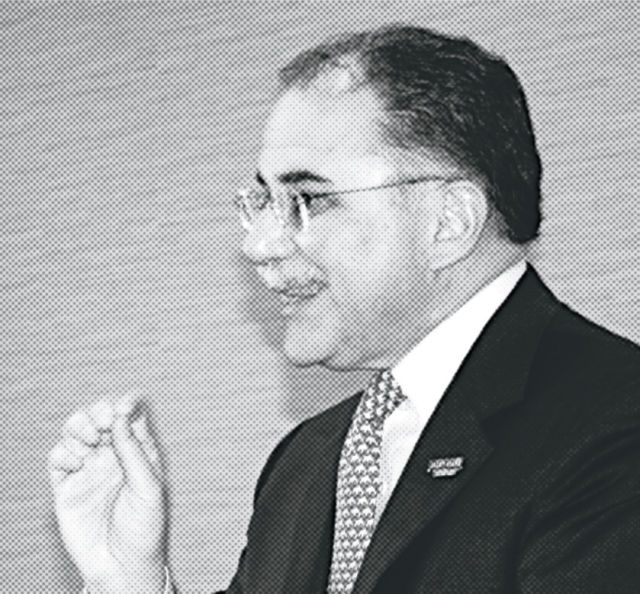Allen Alley

Image: Emma Hall
Allen Alley, 54, cofounded Pixelworks, a semiconductor company, and has worked in the upper management of InFocus Corporation, Boeing Company, and Ford Motor Company, among others. From 2007 to 2008, he served under Governor Ted Kulongoski as the deputy chief of staff for energy, transportation, and economic development.
Download the full audio
Judy Peppler, state president of Qwest in Oregon: You spent a year in the Kulongoski administration, but otherwise you really don’t have a lot of government experience.
Student council. It doesn’t show up on the résumé.
Peppler: Tell us why you’re running and why you think you’re qualified.
For 33 years, I’ve been in business. In my year in the Kulongoski administration, I saw that somebody with a little business background could have a profoundly positive effect, including somebody who is a Republican working in a Democratic administration. We can all feel it: the economy is having a difficult time keeping up with the commitments we’ve made to our governments. For the last 25 years, all I’ve done is identify markets, bring capital and people together, and build companies. On the economic side, that’s what we need. On the operating side, we need somebody to run government like a business.
Peppler: We’re one of 14 states where public employees pay nothing toward their health care costs. We’ve got a looming crisis with their retirement fund. We’ve got a tax system that’s completely unequipped to deal with either. What’s your plan?
Our entire budget is $55 billion, not $13 billion, which is the general fund. With that other $40 million, nobody does bottom-up budgeting. We need to put boards in place and structure them like public company boards that hold management accountable and actually review budgets. In the retirement system, the actuarial analysis that’s been done is based on doubling the size of our payroll over the next 15 years. Why don’t we not double the payroll? I’m going to invest in computer systems, software, and training so that public employees can be more productive.
Maria Wulff, executive director of the World Affairs Council of Oregon: Do you have a fully articulated plan for K–20 [kindergarden through college] education?
I haven’t rolled it out yet. I’m sure I’ve visited more schools than the other candidates combined. My observation is that we’re pouring more and more money in the top and it’s not getting into the classroom. I’m seeing great innovation at the local level that I would like to encourage.
Karla Chambers, co-owner of Stahlbush IslandFarms: How are you going to drive down your overhead? It’s currently 52 cents on every dollar.
When we hire someone at 21 today, their actuarial life span is 85. They will be retired for longer than they worked. That’s not sustainable. We have to have them work longer and reduce the benefits down to something that’s globally competitive.
Orcilia Forbes, educator, chair of Meyer Memorial Trust: What do you think of the proposals for turning the Oregon university system into a public corporation?
I’m very much intrigued with those proposals because one of the things that drives inefficiency in government is lack of competition. When you think about it, government is a 150-year-old business that has grown every year. It has a 100 percent gross margin. It’s also a monopoly. So I’m for anything I can do to drive competition.
Peppler: We have one of the highest unemployment rates in the country. What’s your economic development plan?
I worked in economic development in the governor’s office. My observation is, our economic development was to go find companies that typically aren’t here and then, to be blunt, stuff money in their pockets until they showed up. I would focus on the people already here and ask, “What do we need to do to make our business environment better for you?” We have the perfect tax structure for Democrats and Republicans to work together because it’s all based on jobs. But we can’t figure it out.
Chambers: What are you going to do immediately to tackle the unions and free up capital for small business in this state?
You have to use our Small Business Council to create an environment where they can survive. It’s going to be fees, taxes, regulations. It’s going to be creating an environment in government where business is a customer, not an ATM machine. It isn’t just knocking back the capital gains tax and the sun comes out and the puddles dry up.
Peppler: Where are you on kicker reform, sales tax, rolling back Measures 66 and 67?
Kicker reform: the only thing I would do is take the 0 to 2 percent that is rolled forward and spent and put it in a rainy day fund. If we didn’t have the kicker, we’d be $1.2 billion deeper in the hole than we already are, because we would have spent it. And we’d spend it in a capricious manner because the money comes in at the end of the biennium. Sales tax? That’s an intellectual discussion. I’ve lived in many states that have all taxes. They think their tax system is broken as well. We need stability in savings. I think government has a massive credibility problem, and until we demonstrate fiscal responsibility, I don’t think the citizens will sign up for tax reform. I think we can accomplish the same thing with stability funds.
Wulff: What would you do about the Business Energy Tax Credit?
It’s clearly out of control. We have to scale it way back. It got used more broadly than it was ever intended. I would scale it back.
Forbes: How would you reorganize the departments? Would you get rid of people?
There is a state comptroller. I called him one day and he said, “How did you find me?” I would move some of the comptroller’s functions out of the Department of Administrative Services and plug them more directly into the governor’s office. You can’t revamp budgets and accountability and how we report if the comptroller is buried in administrative services.
Chambers: I can give you over 15 examples of entrepreneurs who are not going to build plants they planned to or who are going to move to Washington or just figure out how to make less money. They’ve had it with this state. Government is our biggest threat, not the marketplace. What are you going to tell them in your first 30 days as governor?
There’s not one thing. It’s a series of things: fee rollbacks, tax rollbacks, regulatory rollbacks. The Oregon Investment Fund is where we’ve put money aside to invest in Oregon, but it’s all leaked out of the state. It’s refocusing things. It’s bringing the attention back to making business thrive. I can’t do it in two weeks. We screwed it up over 25 years.
Wulff: What is the primary difference between you and Chris Dudley?
We have an opportunity to elect the CEO of the state, and we have two massive problems: an economic problem and a structural problem on our state spending side. I think you want somebody who understands both of those sides. And whether it’s me or Chris or any of the others, by far, I have the background.
Wulff: You’ve stated that the 12 states where the federal government owns more than 30 percent of the public land should examine their rights under contracts and treaties to increase extraction of natural resources. That, of course, strikes fear in the hearts of tree huggers. Should it?
What I mean is those 12 states have a duty to their citizens to check all those things. What are the terms and conditions? Do you know how much federal land there is in Texas or Indiana? Almost none. On 99 percent of the land in Indiana, the economic benefits accrue to the citizens of Indiana. Same thing in Texas. Here, 53 percent of the state is appropriated by the federal government. As a state, we’ll make better decisions about our land than the federal government.
Chambers: We have a strong union influence in this state. For every dollar spent on state wages, we average 52 cents for health care and retirement. The national average is 20 to 33 percent. How are you going to get that under control? How are you going to get the unions to the table?
They come to the table to negotiate contracts every biennium. We have to get to the point of sharing costs on health care. We have to get control of costs. It’s like if your employer bought you food insurance, and you had all your food paid for and you could go to any grocery store or restaurant you wanted. And they’re trying to sell you lobsters and filet mignon and caviar because that’s where they make their money. And you feel compelled to eat as much food as possible. That’s health care today. Everybody is incentivized to drive costs up.
Peppler: What does Oregon look like after four years of an Allen Alley administration?
You have transparency on the budgets. We have bottom-up budgets in each of our agencies. You have boards and commissions in place that are actually looking at the budget process. We’ve published it on the web. We’ve demonstrated real value and return for the citizens of Oregon. You’ve also got an environment in place where small businesses are saying, “You know what? The needle moved.” You’ve got environmental groups and timber and miners that are now working together to create economic opportunities that are in harmony with the ethos of the place. Because, guess what—those things we want? China and India want them, too.




